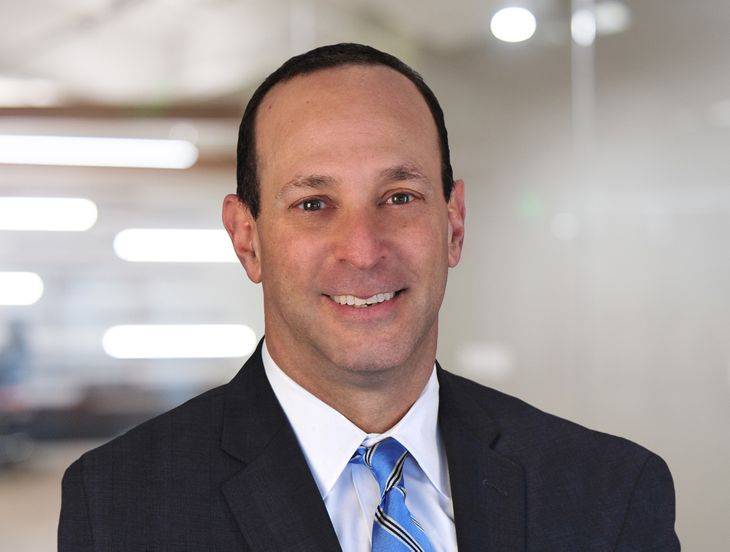The Top 18 Workplace Law Stories from August 2021
Insights
9.07.21
It’s hard to keep up with all the recent changes to labor and employment law. While the law always seems to evolve at a rapid pace, there have been an unprecedented number of changes for the past few years—and this past month was no exception.
In fact, there were so many significant developments taking place during the past month that we were once again forced to expand our monthly summary well beyond the typical “Top 10” list. In order to make sure that you stay on top of the latest changes, here is a quick review of the Top 18 stories from last month that all employers need to know about:
- What Employers Need to Know as FDA Fully Approves Pfizer Vaccine: 6-Step Plan to Impose Vaccine Mandate
The August 23 news that the federal government fully approved the Pfizer COVID-19 vaccine could be a pivotal milestone in the fight against the coronavirus – especially when it comes to employers’ role in the battle. After all, in a survey conducted by Fisher Phillips earlier this month, 10% of employers said they were hesitant to impose a vaccine mandate until the Food and Drug Administration (FDA) removed the Emergency Use Authorization and fully approved the vaccine. Now that this concern is lifted and the risk of legal exposure diminishes by the day, employers may feel more comfortable requiring their workers to receive the vaccine as a condition of employment. What do employers need to know about this development, and what steps do you need to consider if you are deciding whether to impose your own workplace mandate? - Same Old Situation for Employers? Top 10 Takeaways as OSHA Updates COVID-19 Workplace Guidance
In response to the surge of Delta variant cases across the country, federal workplace safety officials just issued updated guidance to help employers and workers identify current COVID-19 risks for unvaccinated or otherwise at-risk workers – making many employers feel like they are in the same ol’ situation they were in just a few months ago. The Occupational Safety and Health Administration’s (OSHA’s) updated guidance, released on August 13, revises its June 2021 guidance applicable to those not covered by OSHA’s COVID-19 Emergency Temporary Standard (ETS) for healthcare workplaces and adheres to updated Centers for Disease Control and Prevention (CDC) coronavirus guidance issued last month. What are the top 10 takeaways employers need to know about with respect to OSHA’s most recent guidance? - FP Flash Survey Reveals Delta is Driving a Dramatic Jump in Employers Requiring COVID-19 Vaccine, But Most Companies Still Not Mandating
The proportion of employers mandating or considering mandating the COVID-19 vaccine increased nearly four-fold in the past three months, spurred by fears surrounding the Delta variant and the growing confidence that such mandates are permitted by the law. 15% of employers said they were now mandating or considering requiring their workers to be inoculated as a condition of employment, a dramatic jump from the mere 4% that fell into that camp as recently as May. That’s according to the results of a survey conducted by Fisher Phillips, with 724 respondents providing their thoughts between August 4-6. The results of this survey – the third one conducted by Fisher Phillips since the start of the year – paint the picture of a nation becoming more willing – or possibly even feeling compelled – to bear the risks associated with a workforce vaccine mandate. At the same time, it is noteworthy that despite this big shift toward requiring vaccines, a full two-thirds of those surveyed said they remain opposed to outright mandates. - 6 Options for Employers Wanting to Improve Vaccination Rates (UPDATED)
With the Delta-variant-fueled surge of COVID-19 cases leading to new CDC masking guidance, statewide mandates, and the specter of further restrictions that proliferated throughout August, employers have a renewed interest in seeing the vaccination rate of their workforces climb. Yet many employers report frustration at a hesitant bloc of workers who have not yet received any vaccine doses. This hesitancy is only emboldened by the CDC’s most recent data suggesting that, although rare, those who are fully vaccinated can contract and transmit the virus. What can you do if you fall into this group that is still striving to increase vaccination rates among employees? Here are six options employers can consider to improve workforce vaccination percentages, listed from what could be classified least to most intrusive. - California Mandates COVID-19 Vaccine for Healthcare Workers
After announcing that healthcare workers (and state employees) will be required to either provide proof of vaccination or submit to weekly or bi-weekly COVID-19 testing, California issued an additional order on August 5 implementing a vaccine mandate for healthcare workers. There are some important distinctions in the order that result in coverage in somewhat unexpected ways, so you will want to familiarize yourself with the contours of this new requirement as soon as possible. What do California employers need to know about this latest development? - California Orders All Teachers to Be Vaccinated or Submit to Regular COVID-19 Testing
The California Department of Public Health issued a Public Health Order requiring all public and private school teachers and school staff serving students in kindergarten through 12th grade to either show proof of full vaccination or be tested for COVID-19 at least one per week. In issuing this August 11 Order, California has become the first state to require vaccinations for all faculty and staff. What do education employers need to know about this development? - 7 Steps Employers Can Take While Rehiring to Avoid COVID-19 Discrimination Workplace Lawsuits
A former employee of a prominent midtown Manhattan boutique hotel filed a class-action age discrimination lawsuit against her former employer, alleging the hotel failed to rehire her or other older employees after reopening following COVID-19-related shutdowns. Plaintiff Darci Fernandez Penal and the 30 to 40 other purported similarly situated employees claim they were laid off and subsequently terminated from the The Kimberly Hotel due to business disruptions to the hospitality industry caused by the pandemic, which substantially reduced occupancy in New York City hotels. Employers in New York and across the country will (if they have not already) be faced with the delicate decision – should you rehire laid off or terminated staff? Here are seven steps you can take, as gleaned from this case filed on August 3, to minimize your chances of being sued when making that decision. - NYC Employers Now Subject to Vaccination Mandates for Indoor Dining, Fitness, and Entertainment
New York City restaurants, fitness facilities, and entertainment facilities are now subject to mandatory vaccination requirements for workers and customers alike. In further effort to increase vaccinations and stave off rising COVID-19 infection rates stemming from the Delta variant, NYC Mayor Bill de Blasio announced on August 3 that NYC will require both employees and customers in indoor dining, fitness facilities, and entertainment venues to have received at least one dose of vaccine in order to work at or patronize the business. With this mandate, NYC has become the first major U.S. city to require proof of COVID-19 vaccination for workers and customers at restaurants, gyms, and entertainment venues. The Mayor did not rule out future vaccine mandates that could apply to other types of businesses. - 7 Steps Your Business Must Take to Comply with San Francisco’s New High-Risk Environment Vaccine Mandate
San Francisco Mayor London Breed just announced enhancements to the city’s Department of Public Health Order setting forth new vaccination requirements for high-contact indoor business such as gyms, restaurants, bars, and theaters. Your business must comply with these new requirements by August 20, so the time to understand your compliance obligations is now. What are the seven steps your business must take as a result? - 7 Key Takeaways for Employers as Illinois Passes Groundbreaking Restrictive Covenant Agreement Law
Illinois Governor J.B. Pritzker recently signed a new law into effect that amends the Illinois Freedom to Work Act (IFWA) and creates greater obstacles for employers when it comes to the enforceability of restrictive covenants such as non-competition and non-solicitation agreements. The new law, signed on August 13 and taking effect on January 1, 2022, will invariably impact any Illinois employer that either deploys such agreements already or contemplates implementing such agreements in the future. Because the new law only applies to agreements that are entered into on after January 1, 2022, now is the time for employers to review and revise their restrictive covenant agreements. Additionally, it is essential to begin planning for the transition to the new legal standards in 2022 and beyond. What are the seven key takeaways employers need to know? - Cal/OSHA “Encourages” – But Does Not Yet Require – Indoor Masking Regardless of Vaccination Status
Following recent updated guidance from the California Department of Public Health (CDPH) recommending that all individuals wear face coverings indoors regardless of vaccination status, Cal/OSHA released a statement “encouraging” employers and workers to follow suit. While the August 25 announcement falls short of requiring businesses to enforce a universal mask mandate, developments are rapidly unfolding and things could soon change. What do California employers need to know about the latest news? - Maryland Mandates COVID-19 Vaccine or Regular Testing for All Nursing Home and Hospital Staff
Two weeks after adopting a vaccine mandate for state-run residential health and correctional facilities, Maryland Governor Larry Hogan announced a statewide vaccine mandate for private nursing home and hospital employees. The August 18 announcement means that Maryland will soon join Washington, D.C., Virginia, New York, California, and several other states in requiring vaccination or regular testing for healthcare workers. This latest mandate comes at a time when every county in Maryland has substantial or high levels of community transmission of COVID-19. What do healthcare employers need to know about this development? - Judge Strikes Down California’s Prop 22 – Will Gig Companies Need to Classify App-Based Drivers as Employees?
In an unexpected blow to gig economy companies in California, a state court judge just reversed the will of voters and overturned the law created by ballot measure that ensured that app-based rideshare and delivery drivers could be classified as independent contractors. Ruling that Prop 22 – which garnered 58% of votes in last November’s election – was unconstitutionally impermissible in several respects, Alameda County Superior Court Judge Frank Roesch issued an August 20 opinion that throws the status of California’s workers classification system into chaos. His ruling may mean that many gig economy workers may need to be instead classified as employees, even if they prefer the freedom and flexibility of independent contractor status. What did the judge rule and what are the next steps in this critical battle? - Hospitals Face Another Administrative Challenge: A New Obligation to Report and Track Employee Vaccination Rates
In shrewd consideration of the healthcare industry’s unique acute care settings, states, localities, and individual hospitals across the nation have prioritized efforts to increase vaccination rates among healthcare workers. Thus, not surprisingly, the Centers for Medicare & Medicaid Services (CMS) has implemented a new rule that will soon require hospitals to regularly track and report COVID-19 vaccination status for all personnel. The requirement is sandwiched in a far-reaching and dense hospital payment rule formally published on August 13. Specifically, the new directive seeks to “support public health tracking and provide patients, beneficiaries, and their caregivers important information to support informed decision making” as well as protect the health and safety of patients and staff alike. What do hospital employers need to know about this new requirement, which is slated to take effect on October 1, 2021? - What Do the New Mask and Vaccine Mandates Mean for Washington Employers?
Governor Inslee and Washington’s Department of Health have been busy the past month modifying existing mask rules and enacting new vaccine requirements for certain classes of healthcare workers. There has been enough activity in August that many Washington employers and businesses might feel uncertain regarding their obligations and rights. The following is a summary of the new mask order and the vaccine proclamation requirements. - Employers Need to Adjust as Boston Reissues Indoor Mask Mandate
Acting Boston Mayor Kim Janey just announced a resumption of an indoor mask mandate for all indoor areas open to the public within the City of Boston effective August 27. The renewed mask mandate is one aspect of the City’s “Five-Point Plan for the Delta Variant,” coming as Boston battles the virus resurgence and prepares for the return of more than 50,000 out-of-town students to the City’s colleges and universities. Here’s what employers need to know about the latest developments. - Victory! Virginia Automobile Dealers Relieved from Impending Wage and Hour Obligations
Thanks to the advocacy of industry leaders, in collaboration with Fisher Phillips, Virginia lawmakers just provided significant relief to the automotive dealer industry by way of the state’s updated budget bill. Signed by Governor Northam and effective August 10, the budget bill explicitly carves out exemptions for sales, parts, and mechanics just as under federal law from the overtime obligations that just took effect under Virginia’s strict new wage and hour law – and otherwise would have caused havoc for the industry had they remained. This development is a significant victory for the Virginia dealership industry. But there remains uncertainty for Virginia dealers on how to handle the small amount time between the onerous law taking effect and the carve-out being enacted that will need to be carefully managed. What do you need to know about the welcome relief and how to manage this delicate situation for the time being? - Massachusetts Employers Must Exercise Caution: “Implicit” Domestic Violence Leave Requests Could Lead to Liability
The highest court in Massachusetts just ruled that employers may be subject to liability under the state’s domestic violence leave law even if employees don’t explicitly request such leave, creating a potential liability trap for unsuspecting employers. The Massachusetts Supreme Judicial Court had its first opportunity to analyze the Commonwealth’s Domestic Violence and Abuse Leave Act (DVLA) in the August 25 Osborne-Trussell v. The Children’s Hospital decision, ruling in favor of an employee suing her former employer. Its decision broadly interpreted how “employee” is defined under the statute and held that the law’s anti-interference and anti-retaliation provisions apply even when an employee does not expressly ask to take domestic violence leave. Here is what Bay State employers need to know about this decision and its implications.
We will continue to monitor developments related to all aspects of workplace law. Make sure you are subscribed to Fisher Phillips’ Insight system to get the most up-to-date information. If you have questions, contact your Fisher Phillips attorney.
Related People
-
- Richard R. Meneghello
- Chief Content Officer
-
- Samantha J. Monsees
- Partner
-
- A. Kevin Troutman
- Senior Counsel
-
- Melissa Camire
- Partner
-
- Aymara Ledezma
- Partner
-
- Hannah Sweiss
- Partner
-
- Lonnie D. Giamela
- Partner
-
- Jason A. Geller
- Regional Managing Partner
-
- Brandon Kahoush
- Partner
-
- Patrick W. Dennison
- Partner
-
- Amanda M. Blair
- Associate
-
- Daniel E. Farrington
- Regional Managing Partner
-
- Alexa Greenbaum
- Associate
-
- Phillip C. Bauknight
- Partner
-
- Joshua D. Nadreau
- Regional Managing Partner and Vice Chair, Labor Relations Group
-
- Catharine Morisset
- Partner
-
- Robert M. Robenalt
- Partner
-
- James M. Hux, Jr.
- Of Counsel
-
- Joel W. Rice
- Partner
-
- Zinnia Khan
- Associate



















